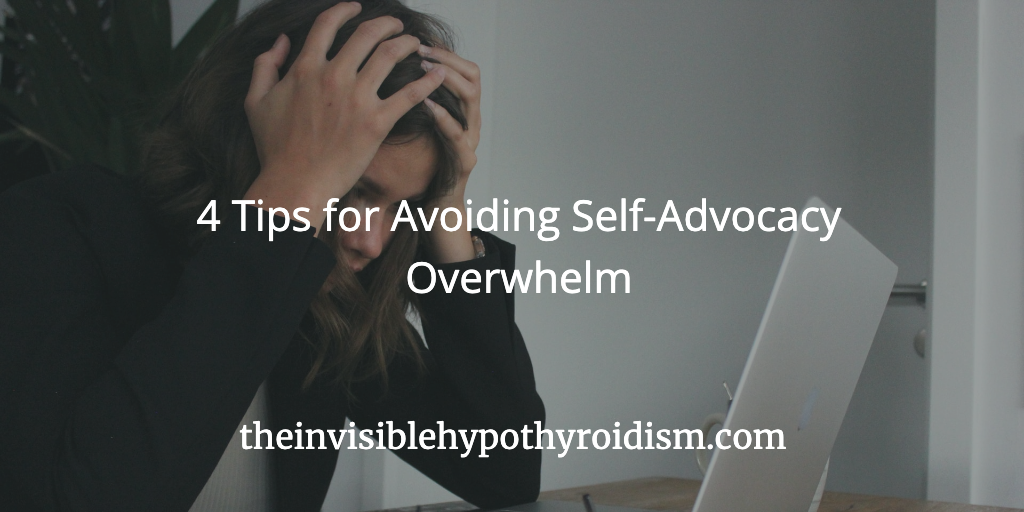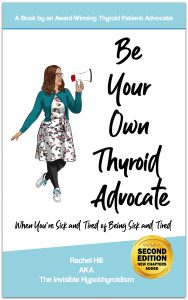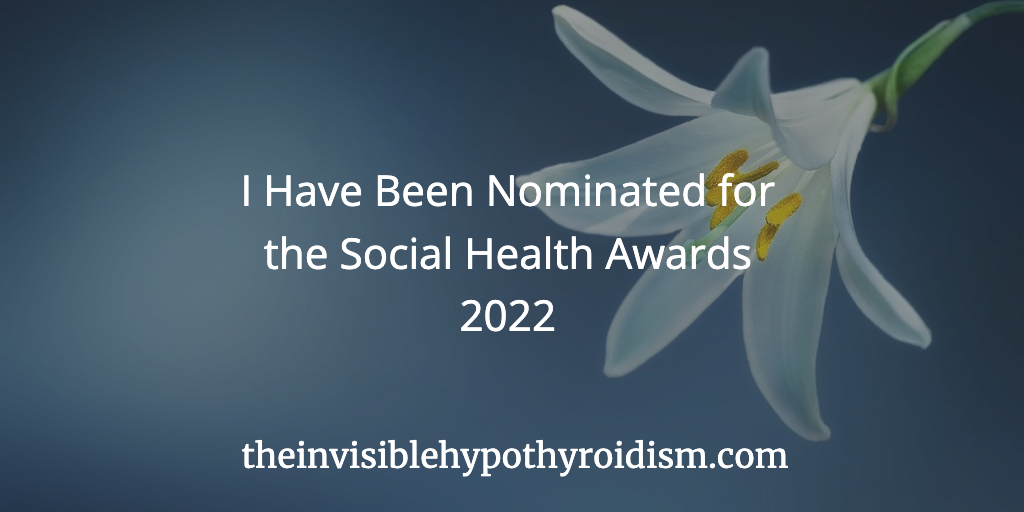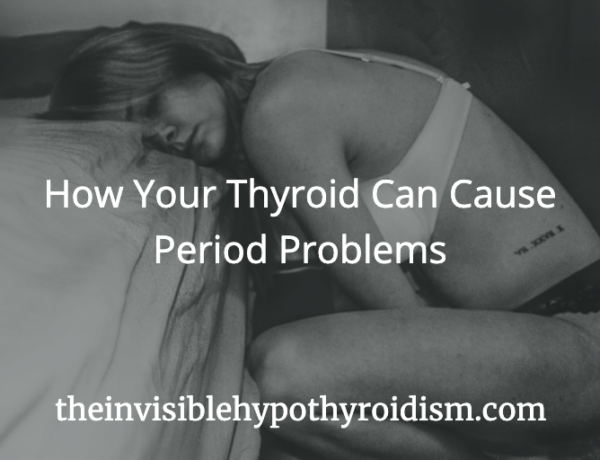When I was first diagnosed with autoimmune hypothyroidism in the summer of 2015, my head was spinning. I didn’t know what this diagnosis meant, what my thyroid medication was for exactly, and what to do about my thyroid medication seemingly not helping.
I would search forums, online support groups and websites for information, leading me down rabbit holes which quickly became overwhelming. Countless ‘thyroid books‘ were recommended and I began diving in to them, but soon found that I was feeling confused about the conflicting information and my stress levels and anxiety increased as a result.
When I was starting out on my thyroid advocacy journey, that is, wanting to understand as much as possible about what I could do to be more involved in getting my thyroid issues under control, I was still fatigued and brain fogged, which only made it harder to absorb information.
The tips mentioned below can help you to avoid feeling totally overwhelmed as you navigate the plethora of information out there.
1. Read in Small Chunks
When it comes to reading websites, forums, studies, books and other forms of research, do so in small chunks. Attempting to absorb lots of new information for hours at a time can exacerbate feelings of overwhelm, fatigue and brain fog.
To begin with, I would spend hours upon hours chewing through thyroid information, only to come away from it feeling overwhelmed about where to start implementing any of it and struggling to recall much of it.
Being told that I needed to go away and do a hundred different things immediately made me less inclined to make any changes at all, since I was so unwell physically, coupled with depression and anxiety.
So, I started to implement reading just one chapter of a book at a time, making notes on it and focusing on that, or zoning in on one topic at a time so that I could concentrate my efforts.
2. Set Boundaries
I found it useful to create boundaries around consuming ‘thyroid information’. For example, I would avoid it in the evenings, as reading heavy material before bed tends to keep me awake while my mind processes it.
I created a set time of day that I would dive into my thyroid books and this was at lunchtime, on my lunch break at work, usually for half an hour or so.
3. Dismiss What Isn’t Relevant
Apply the mantra that everyone is different and what works for some people does not work for others.
There is so much conflicting information out there, from “everyone to should take iodine supplements” to “no one should take iodine” and “Levothyroxine is the worst thyroid medication” to “Levothyroxine works for most people”. Can you blame us for feeling confused?!
Don’t think that you have to implement everything that you read. In fact, this would be impossible to do! There are many possible interventions that people with hypothyroidism and hashimoto’s have taken in order to recover their health, but the combination of them differs from person to person. Not everyone needs to apply exactly the same changes.
It can be helpful to stick to a few main resources you trust and dismiss others. The noise on social media in particular is loud. Choose sources you genuinely connect with, trust and respect.
4. Take Small Steps
Make small, incremental and manageable changes.
When you come across some information that you would like to implement, for example speaking to your doctor about trying a different treatment, ordering more in depth testing, altering your diet (removing gluten, dairy or focusing on keeping blood sugar more balanced are all common), take small, manageable steps.
Doing so means that you can track which changes are genuinely helping you, but also help to avoid feeling overwhelmed with too much to change all at once. When you take one step, see positive results and gain a little bit of energy back, perhaps less brain fog or other thyroid symptoms, this creates room for you to tackle another area and implement something else.
When we take on too much change at once, it can be easy to feel overwhelmed and draw back on making any steps altogether. What we want to do is make sustainable improvements and this is best done while listening to our bodies and mental health and going at a pace that is manageable to us.
For example, I initially went gluten-free, saw huge benefits to symptoms such as brain fog and fatigue, and after another year also tried dairy-free.
I found adjusting to a gluten-free diet a year earlier to be a huge transition alone and had I also gone dairy-free at the same time, I wouldn’t have kept it up past a few days.
I was dairy-free for several months before deciding that it wasn’t showing any benefit to me personally and went back to eating dairy. By only implementing this change, I could focus on the results, if any, from that intervention alone.
Conclusion
Wanting to advocate for your health and learn about the changes that you can make to look after yourself is brilliant, but it can get overwhelming rather quickly.
As well as implementing the above tips, you can find all the information you need, written in a concise and easy-to-digest format, in my bestselling book Be Your Own Thyroid Advocate: When You’re Sick and Tired of Being Sick and Tired.






